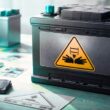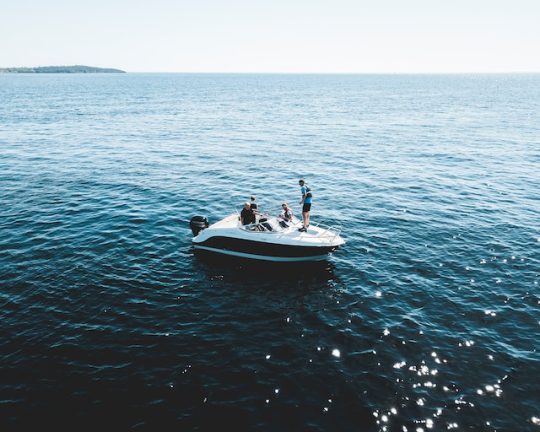A whopping 100 million Americans go boating every year. If you own a boat of your own, it’s your responsibility to keep it well-maintained and cared for.
Even with the best intentions, though, many people commit some common boat maintenance errors. These can be avoided if you’re well-educated and continue to learn about proper boat ownership.
That’s where this article can help. We’ve outlined the most common boat maintenance issues that occur.
If you take pride in owning your boat, you’ll take care to learn more about them. Keep reading to ensure your boat always stays in the best possible condition.
Not Following Manufacturer Guidelines
When you first bought your boat, it probably came with a manual. This included key guidelines on how to operate and maintain your new toy.
It’s worth noting that they were written specifically for your boat’s make and model. Not following these guidelines could result in damage to your boat.
Other consequences could be decreased performance or even accidents. Don’t underestimate the potential seriousness of boating accidents.
The unfortunate truth is that there were 658 fatal boating wrecks throughout the country in 2021. Who knows how many of these were due to a malfunction that could have been prevented?
For example, the manufacturer may recommend a specific type of oil or fuel for your boat’s engine. Using a different type of oil or fuel could damage the engine or cause it to run poorly.
The manufacturer may also suggest how often to perform certain maintenance tasks. Examples would be changing the oil or checking the steering system. Not following these tips could lead to mechanical problems that could cause even more headaches later on.
Neglecting Engine Maintenance
Your boat’s engine is one of the most important components of your vessel. Without a functioning engine, you risk losing power while out on the water. This can be dangerous for yourself, your passengers, and other boaters.
That’s why engine inspections are an essential part of a proper boat maintenance routine. This is the best way to ensure that your boat is running at its best. It can also prevent costly repairs down the line.
One common engine maintenance task is changing the oil. Just like a car, your boat’s engine needs regular oil changes to keep it lubricated and running smoothly.
Another important task is checking and changing the air filter. A dirty air filter can reduce your engine’s performance and fuel efficiency.
You should also regularly inspect your engine’s belts and hoses for signs of wear and tear. If you notice any cracks, fraying, or other damage, take note. Be sure to replace them before they fail and cause more serious problems.
Failing Regular Boat Cleanings
Keeping your boat clean is not only important for appearance. It’s also crucial for maintaining its condition and value.
Plus, a clean boat is simply more enjoyable to spend time on. Your passengers will be further grateful that regular boat cleaning can help prevent slipping hazards.
Common boat cleaning tasks include washing the boat’s exterior with soap and water. This is particularly useful to remove salt and dirt buildup.
You can also use specialized boat cleaners. These are ideal for more stubborn stains or for cleaning specific surfaces, such as vinyl or fiberglass.
Lastly, cleaning the boat’s bilge area is crucial for maintaining a safe and healthy environment. The bilge can collect oil, fuel, and other pollutants. Don’t forget to pump out and clean this area every time you’re ready to do some cleaning.
Dismissing the Electrical System
Your boat’s electrical system is essential for powering lights, navigation equipment, and more. Failing to properly maintain this system can result in malfunctions, system failures, or even electrical fires.
Electrical maintenance starts with checking the battery system. Inspect the battery connection, and charging system. These need to be in tip-top shape so that the battery is fully charged and functioning properly.
Loose or corroded connections can cause electrical problems, too. Check and tighten these connections throughout the battery system as needed.
Additionally, you should inspect all wiring and electrical components for signs of wear. This could look like frayed wires or cracked insulation. Damaged wiring or components can cause shorts or other electrical problems that can be dangerous.
Also, check your boat’s circuit breakers and fuses. Ensure they’re working properly and are the correct size for the electrical load they’re protecting. These safety devices help prevent overloads that can cause fires.
Not Checking the Fluids
Next, check and change your boat’s fluids on a consistent schedule. Your owner’s manual can help keep them at the correct levels and free of contaminants.
One important fluid to check is the engine oil. The engine oil lubricates the engine’s moving parts and helps to dissipate heat.
Over time, the oil can become clogged with dirt and debris, reducing its effectiveness. Check the manufacturer’s guidelines to keep the levels steady and the engine running smoothly.
Another important fluid to check is the coolant. This helps to regulate the engine’s temperature and prevent it from overheating.
Low coolant levels or contaminated coolant can cause the engine to overheat. This can seriously increase your long-term boat maintenance costs.
You should also consider the transmission fluid. This helps to keep the transmission lubricated and cool.
Finally, it’s important to check the fuel in your boat to ensure that it’s clean and free of water. Water in the fuel can cause damage to the engine and other components.
For that reason, boat owners need to drain any water that may have accumulated in the fuel tank. Whenever you’re flushing any of the boat’s fluids, by the way, you’ll need protective motor muffs. Click for boat muffs that can prevent water from escaping the motor during these maintenance tasks.
Ignoring Warning Signs
When you notice warning signs, address them promptly. This is the most reliable way to prevent them from turning into more significant repair needs.
A warning sign to watch for is unusual noises from the engine or other components. Squealing, grinding, or knocking noises can pop up out of nowhere.
These often indicate problems with the engine, transmission, or other parts of the boat. It’s best to have these noises checked out promptly by a professional to save on even higher potential repair costs.
Another warning sign to watch for is unusual smells. These might take the form of burning or gasoline odors.
These smells can suggest problems with the engine or fuel system. Such an issue can be dangerous if left unchecked.
Pay attention to warning lights or gauges on the boat’s dashboard. These can notify about low oil pressure, high engine temperature, or other problems that require immediate attention. The available lights depend on your boat’s make and model.
Perhaps you notice that your boat is handling differently than usual. For instance, it might be pulling to one side or vibrating. In these cases, address the issue promptly to prevent further damage or safety concerns.
Overlooking Hull Maintenance
The hull is the outer shell of the boat that comes into contact with the water. Don’t forget about it when you’re spending time on boat maintenance.
Start with cleaning the hull regularly. This can help prevent the buildup of algae, barnacles, and other marine life.
These can all slow down your boat and damage the hull over time. Use a marine-safe cleaning solution and a soft brush or sponge to gently scrub the hull.
Another important task is checking the hull for any cracks, chips, or other damage. Even small cracks or chips can allow water to seep into the hull. Repair these promptly to maintain the integrity of the hull.
You should also inspect the hull for signs of blistering. This can occur when water seeps into the fiberglass or gel coat.
Also, apply a fresh coat of antifouling paint to the hull periodically. This can further prevent marine growth and damage. Only do so according to the manufacturer’s recommendations.
Forgetting to Winterize
Winterization is an essential task for boat owners. This is of particular importance if you live in an area with cold temperatures. Failing to do so can shorten the lifespan of your boat.
First, drain all the water from the engine, cooling system, and plumbing. Water can freeze and expand, causing damage to your boat’s components. Use an air compressor to blow out any remaining water.
Next, change the oil and oil filter in the engine. Old oil can contain contaminants that can corrode the engine during storage.
Finally, you should cover your boat with a sturdy, waterproof cover. This is key to protecting it from the elements and preventing moisture from getting inside.
Avoiding These Boat Maintenance Errors
You’re now more familiar with today’s most common boat maintenance errors. Now, it’s up to you to incorporate better ownership practices.
Avoiding these mistakes is a great place to start, but you should also continue your research throughout the future. Fortunately, this blog is a great resource to keep up with the latest trends in boating, recreation, and more. Subscribe and follow now to ensure you never miss a crucial trend or update.






